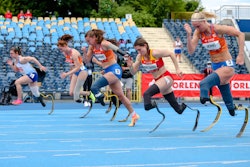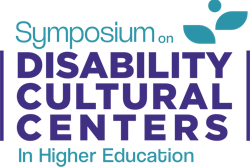When Dan Hackett started college, he didn’t make the grades he knew he could.
Hackett, who has Asperger’s syndrome, found at the Community College of Allegheny County in Pittsburgh that some of his symptoms were holding him back. He had difficulty organizing his time and managing assignments.
“I always knew I could do better,” said Hackett.
His parents tried to help, but he wasn’t comfortable with them intervening at college. He was relieved to discover Achieving in Higher Education with Autism/Developmental Disabilities, a group that helps college students like him.
After contracting with AHEADD, Hackett’s grade point average increased from 1.5 to 3.6.
“They kept me on track,” says the now 21-year-old political science major. “They helped me manage my time.”
Many students with Asperger’s or other autism-like disorders face new challenges in a college setting. The syndrome hampers communication and social skills, so along with difficulties staying on top of their studies, these students may struggle with making friends and living more independently. They also may be more reluctant to ask for help.
It’s a problem colleges and universities are “very aware” of as the first big wave of children diagnosed with autism-related disorders moves beyond high school, says Dr. Gwendolyn Dungy, executive director of NASPA, a Washington-based organization of student affairs administrators.
“We’ve been very interested in it and finding out how ready colleges are for these students,” she said. “We want to establish a climate for success.”
While higher education institutions usually make accommodations for students with disabilities, the law does not require them to provide the extent of services that students receive in kindergarten through 12th grade.
College students must become their own advocates, a change that can take them and their families by surprise, said Donna Martinez, executive director of George Washington University’s Heath Resource Center, an online clearinghouse for students with disabilities.
“It’s night and day” from high school, she said. “It’s a whole different world.”
Colleges are trying to educate faculty and staff about autism-related disorders and gauge how much services will cost, said Dungy, who organized a seminar on these questions at her association’s annual conference in March. Most colleges already provide services to students with disabilities or special needs.
For decades, only children with severe language and social impairments received the autism diagnosis. In the 1990s, the autism umbrella expanded, and autism is now shorthand for a group of milder, related conditions, known as “autism spectrum disorders.”
One in 166 children is now diagnosed with autism, compared to 1 in 2,500 a decade ago.
There has been a corresponding surge in special education services for autistic children in elementary and high schools.
“More and more of these people who were identified (in the 1990s) could be headed to college,” said Marjorie Solomon, who studies high-functioning children with autism disorders at the University of California Davis’ M.I.N.D. Institute.
One college that has added services for such students is Marshall University, home to the West Virginia Autism Training Center. Through its College Program for Students with Asperger’s Syndrome, graduate students help autistic students manage class assignments and develop social and living skills.
The program fields about 10 calls a week from parents of prospective students, said Dr. Barbara Becker-Cottrill, director of the training center. “The parents are saying, ‘Wow, my student has the grades and there’s a place that will provide the appropriate support for him or her?”’ she said.
Students pay $3,200 per semester to enroll in Marshall’s program. Advisers may speak with them several times a day, have weekly contact with their professors and help find them social activities. They might give guidance on dorm living or cafeteria food.
“Most classes are 50 minutes long, two to three times a day,” noted program coordinator Marc Ellison. “The rest of the time, you’re navigating the college community. My advice to students is to realize the least amount of time you spend in college is in the classroom.”
Families looking for the right college for autistic kids should ask whether a school has a counselor who specializes in autism, if professors receive training about it, and what academic accommodations, such as additional time for taking tests, can be made, experts said. Students also should inquire about social opportunities: Does the school have an autism organization for students? Would the university help find a peer mentor?
Peter Breslin of South Salem, N.Y., knew his son, Jason, could handle college academics, but he worried about the rest of the experience. The center at Marshall has made all the difference, Breslin said, even though Jason doesn’t always think to contact it himself.
“They have to seek him out,” said Breslin. “He thinks he could do it without going to the center. But he really does need them.”
Jason Breslin, 20, a music performance major, says, “They have all been very helpful and supportive of me. I tried a semester without going to the center and ended up with very low grades because of late assignments or no assignments turned in.”
The Organization for Autism Research, a nationwide group, is creating a line of videos designed to educate college staff. The first is aimed at professors; a second, in the works, will be geared to resident assistants.
AHEADD, the Pittsburgh-based organization, recently opened offices in Dallas, Washington and Albany, N.Y. It charges between $4,200 and $5,700 per semester for help with all aspects of college life.
“We start with academics,” says founder Carolyn Komich Hare. “If our students don’t do well academically then they’re not around to deal with the big issues.”
© Copyright 2005 by DiverseEducation.com





















